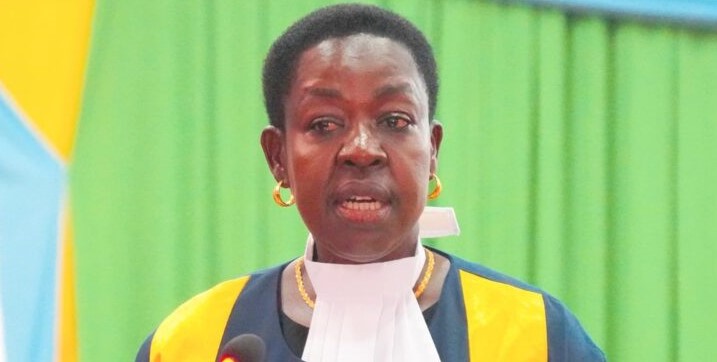Members of the Transitional National Legislative Assembly (TNLA) have argued that the UN arms embargo on South Sudan has left the country militarily weak and exposed to external threats, particularly from neighboring states.
Their concerns come in the wake of continued clashes along the borders, most recently with Uganda in Central Equatoria State’s Kajo-Keji County, where several soldiers of the South Sudan People’s Defense Forces (SSPDF) were killed over a long-standing border dispute.
During Wednesday’s sitting on a motion concerning South Sudan’s territory and boundaries with neighboring countries, Bona Deng Lawrence, a National Agenda party MP representing Aweil South County in Northern Bahr el Ghazal State, said the embargo has weakened South Sudan’s military, and its inability to acquire ammunition has left it vulnerable to external aggression.
“I would like us to know that sovereignty is not only protected by laws, but also by power,” he stated. “Whether it is enshrined in the national or international laws. I believe that sovereignty is also protected by military power.”
The legislator said history has indicated that major military powers such as the US, Russia, and China are not easily invaded or encroached upon.
“If you look internationally, and what is happening around us, whether it is the war between Ukraine and Russia, you can see what is happening with the sovereignty of Ukraine,” he cited. “But when you have balanced powers and we have China and the US or the US and Russia, they will never go to war.”
Deng emphasized that the arms embargo is the main reason the country is provoked by neighbors like Uganda, who believe it can attack South Sudan without repercussions.
“I believe that the embargo on our country is weakening us, or at least, others view us as people who do not have military capability equal to theirs. This is why you see our neighbors, and I urge them to be good neighbors, encroaching into our lands here and there,” he said. “I am not calling for a conflict or a war, but saying that where you have military capabilities, you are respected. That is why I say we should always continue to call for lifting the arms embargo on our country so that we will be able to have our military capability and be respected by our neighbors.”
For his part, Victor Omuho Ohide, an MP representing Eastern Equatoria State, also reflected on the border dispute between Kenya and South Sudan and said that military flexibility is sometimes a solution in solving such issues.
According to Ohide, the border of Kenya and South Sudan in Eastern Equatoria State used to be in Lokichogio; however, with time and silence from government officials, Kenya decided to extend it to Nadapal.
“Our border is the river in Lokichogio. My recommendation is that this temporary border in Nadapal be moved back to where it was. Those of you who were in the SPLM/A know very well that Key Base is part of South Sudan, and that was where military hardware was hidden,” he said. “That land of Moyosukun has now been taken by Uganda, and they have even put their tanks there. That is why I agree with my colleague who said sometimes military flexibility is necessary.”
South Sudan, as a sovereign state, has been grappling with challenges in determining its international borders and internal boundaries since its independence. There have been several border disputes with neighboring countries like Sudan, with Abyei being contested, Kenya with the Ilemi triangle, Kajo-Keji with Uganda, and Gambella with Ethiopia, among others.
The parliamentarians recommended that the ministries of defense, foreign affairs, and the border commission be summoned to the House to explain the way forward.
When clashes erupted in Kajo-Keji between the Uganda People’s Defence Forces (UPDF) and South Sudan People’s Defense Forces (SSPDF) recently, civil society activists called for dialogue.
Edmund Yakani, the Executive Director of the Community Empowerment for Progress Organization (CEPO), warned against escalation and urged the two countries to resolve the issue amicably.
“Our border communities should not be treated as war zones and both governments must prioritize civilians’ safety,” he said.




